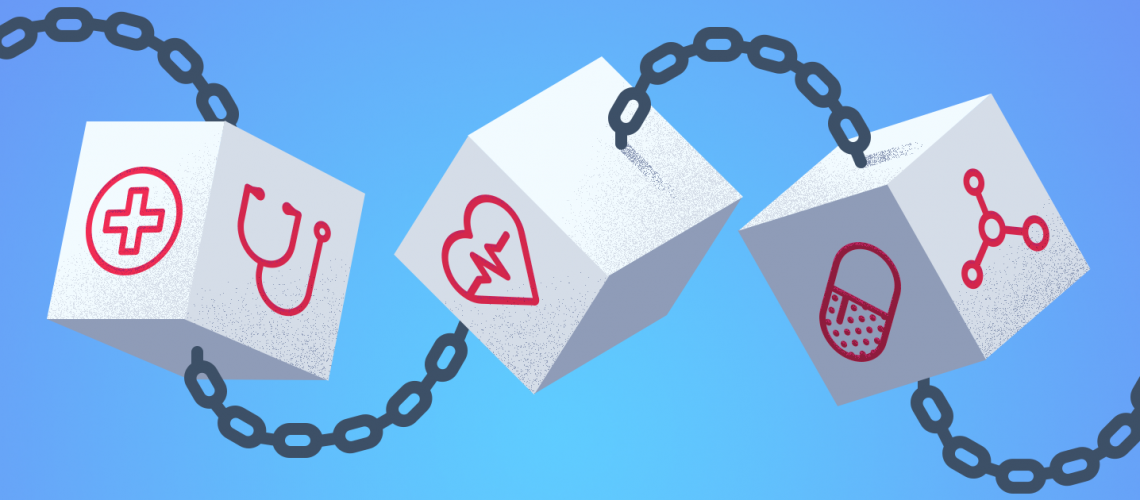The revolution in Blockchain technology has made its way to the healthcare industry and is already showing promising results in the technical advancements in health care. Healthcare Rallies For Blockchain, a study from IBM, found that 16% of surveyed healthcare executives have solid plans to implement a commercial blockchain solution this year, while 56% expected to by 2020. Healthcare companies, tech developers and the rest of the healthcare industry are grappling with what’s possible now and what blockchain could solve in the future.
The overall vision for blockchain to disrupt healthcare in the future would be to solve many issues that prevail in the industry today to develop a common database of health information that doctors and providers could access in whichever electronic medical system they used, higher security and privacy, less administration time for doctors so there is more time to spend on patient care, and even better sharing of research results to facilitate new drug and treatment therapies for disease.
What is blockchain?
While blockchain principles are applied in the financial world as the technology that allows Bitcoin to operate, it has applications for several other industries including healthcare. Blockchains are distributed systems that log transaction records on linked blocks and store them in an encrypted digital ledger. There is no one central administrator, but it has huge security benefits because records are spread across a network of replicated databases that are always in sync. Users can only update the block they have access to, and those updates get replicated across the network. All entries are time and date stamped.
What are the potential uses of blockchains in healthcare?
The healthcare industry has a very large database of clinical trials, patient medical records, complex billing, medical research. Adoption and implementation of blockchains will be an evolution over time as blockchains applications are accepted and adopted as well as the industry coming together to determine collaboration and governance issues. Here are the most likely applications:
Medical Data Management
MedRec, one prototype using blockchains, intends to improve electronic medical records and allow patients records to be accessed securely by any provider who needs it. The technology can save time, money and duplication in procedures, confusion and sometimes even life-threatening issue of records being distributed across many different facilities and providers. The goal with MedRec is to give patients and their providers one-stop access to their entire medical history across all providers they have ever contacted. Additionally, if patients wish to grant access to their medical records to researchers, their data would be provided anonymously to be used in research which could make medical breakthroughs possible.
Medical Research
Centralizing the results of clinical trials and patient reports for new treatment protocols can improve care and patient outcomes. Currently, with all the diverse and disconnected systems in play, there is no way for health care providers to process all the data that is generated and recorded in old systems for future treatment possibilities. Blockchains could make medical innovations quicker.
——————————————————
Photo courtesy of: Finance Express
Originally Published On: Finance Express
Follow Medical Coding Pro on Twitter: www.Twitter.com/CodingPro1
Like Us On Facebook: www.Facebook.com/MedicalCodingPro







